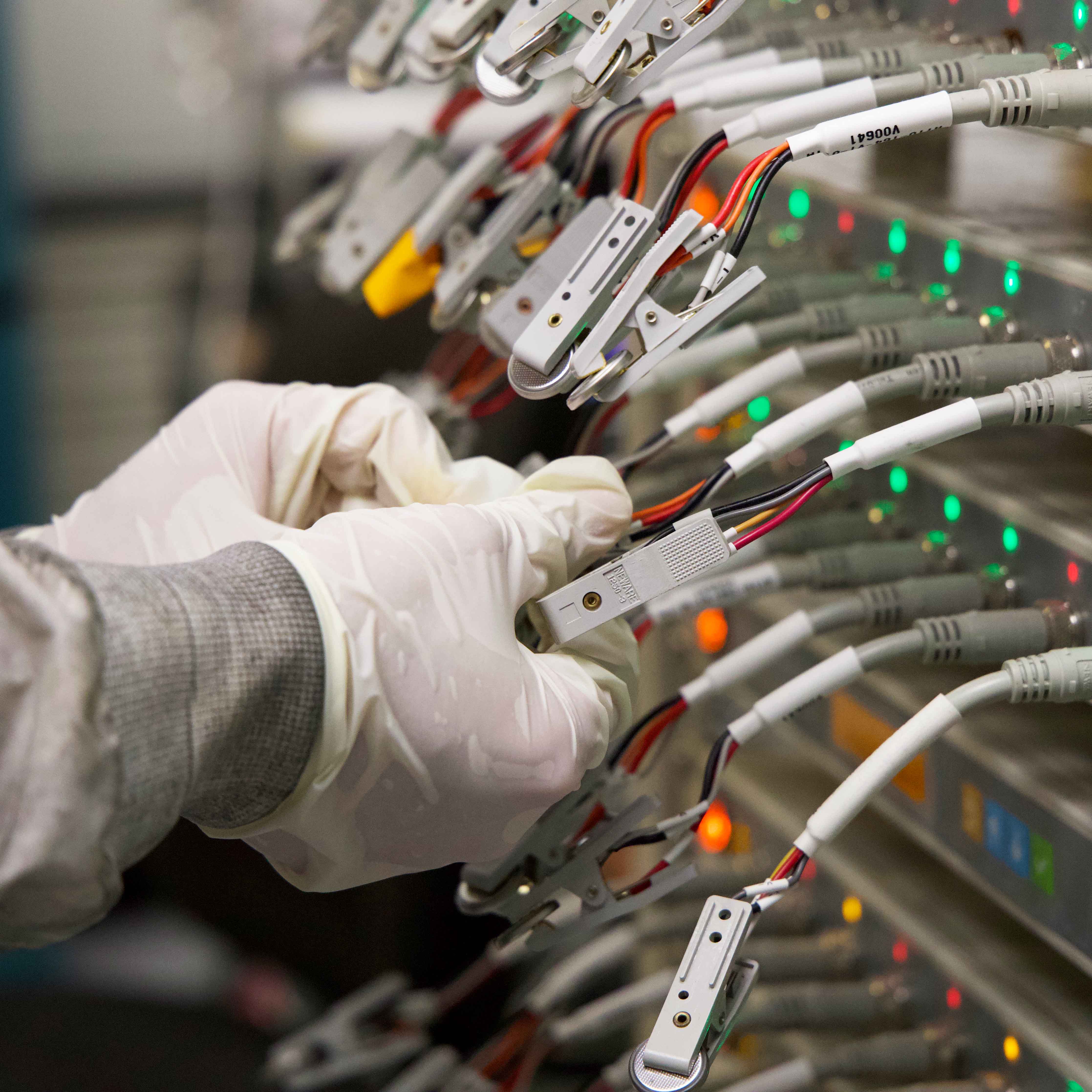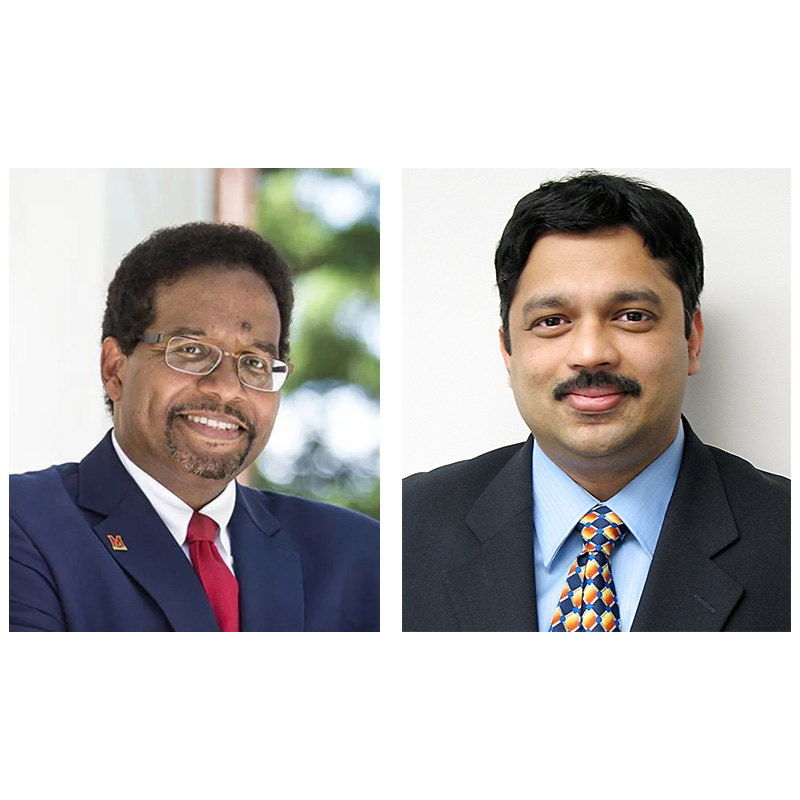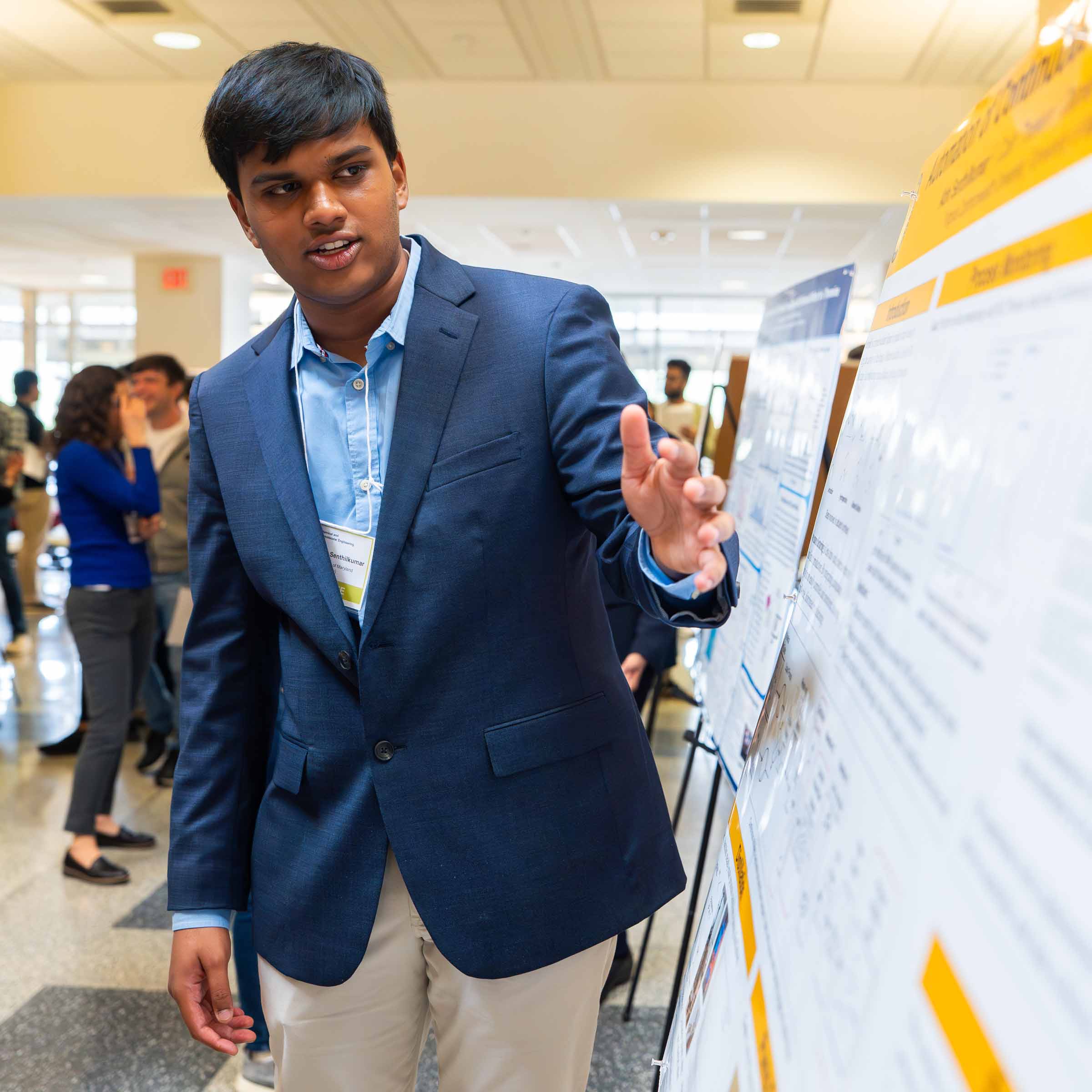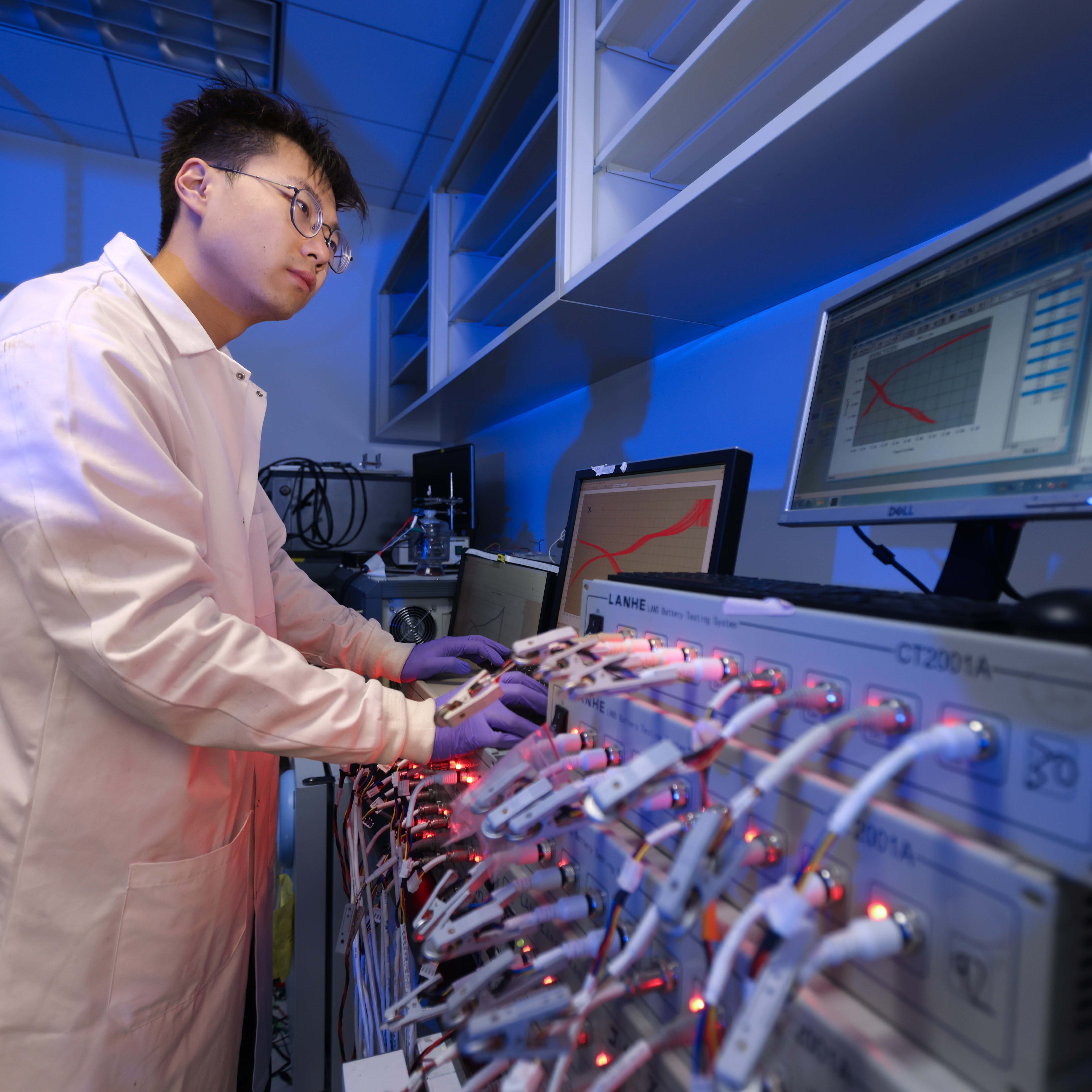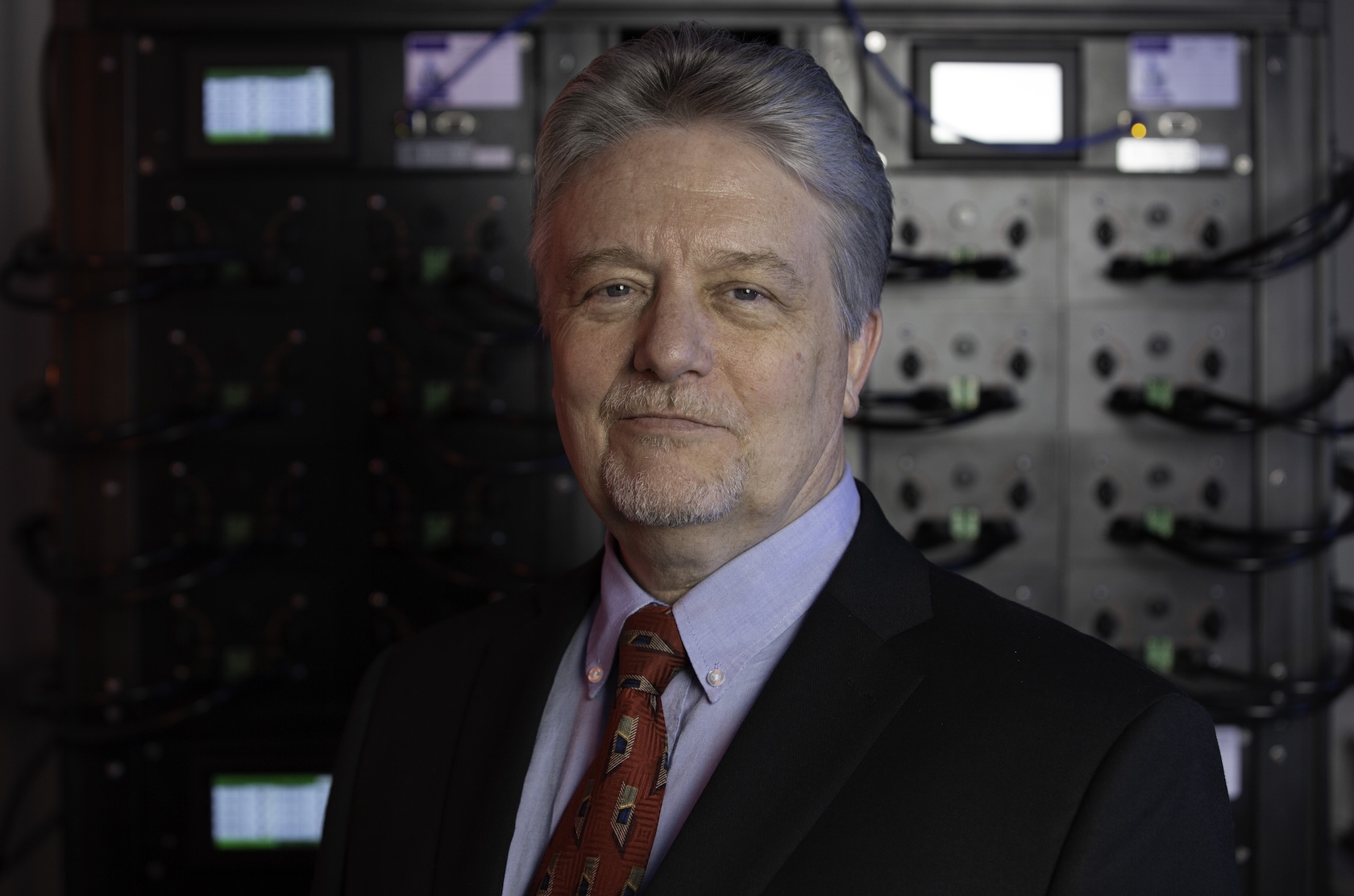News Story
UMD Undergraduate Student Receives NSF Award
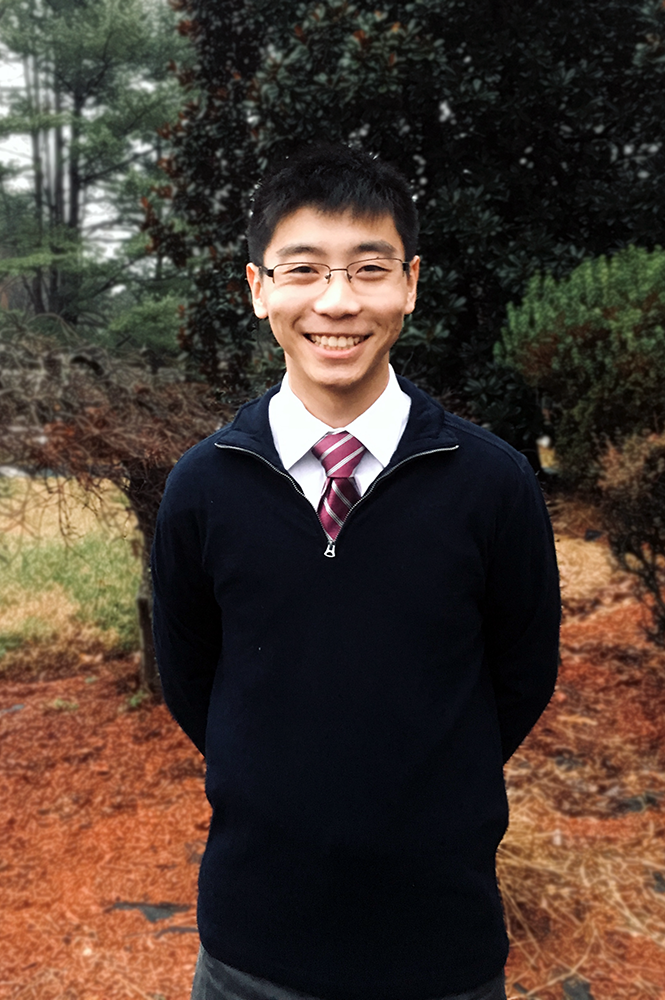
Eric Wang, an undergraduate student in the UMD Department of Bioengineering (BioE), advised by Chemical and Biomolecular Engineering (ChBE) Associate Professor, Jeffrey Klauda, has received a National Science Foundation (NSF) Graduate Research Fellowship Program award. Wang will receive three years of support – including a stipend and additional funding towards a graduate degree – over a five-year fellowship period.
In 2016, Wang – now a BIOE undergraduate senior, Churchill Scholar, Goldwater Scholar, and Howard Hughes Medical Institute Research Fellow – began working with Professor Klauda to study cell membranes using molecular dynamics, a simulation method that can model the movements of molecules.
Under Klauda’s guidance, Wang focused much of his research on modeling the outer layer of the skin – known as the stratum corneum – and the assembly of its lipids. The stratum corneum protects the human body from damaging and toxic compounds by providing a relatively impermeable barrier for the skin, but topical skin drug delivery developed by pharmaceutical companies must also break through this barrier in order to work effectively.
In 2017, Wang joined the lab of Klauda’s collaborator, Richard Pastor, senior investigator in the Membrane Biophysics Section of the National Heart, Lung, and Blood Institute at the National Institutes of Health (NIH). There, he used molecular dynamics to determine how a peptide that promotes membrane fusion stabilizes pore formation. In 2018, Wang returned to Pastor’s lab to build on his research, and he also began working in the lab of Joshua Zimmerberg, associate scientific director at the NIH Eunice Kennedy Shriver National Institute of Child Health and Human Development.
“When I first began working with Dr. Klauda, I knew little about programming and biochemistry, so I found myself at the bottom of a steep and frustrating learning curve,” Wang said. “Buried under stacks of articles and coding documentation, I spent months learning scientific concepts and technical aspects of simulation. After months of coding and writing, I completed my first manuscript. It was then that I experienced the ultimate satisfaction of scientific research – the product of months of single-minded attention culminating in a compelling narrative shared with the community.”
To date, Wang has published seven papers, on which he served as either first author or co-first author. He presented his work at the 2018 and 2019 Meetings of the Biophysical Society, the 2018 North Carolina State Chemical Engineering Symposium, and the 2017 and 2018 American Chemical Society (ACS) National Meetings. Additionally, he serves as a reviewer for the Journal of Physical Chemistry and the Journal of Molecular Modeling and is a research mentor for local high school students. Wang also received the Outstanding Junior Award - presented on the basis of outstanding academic achievement and contributions to the department - at the 2019 Clark School Undergraduate Honors and Awards Ceremony.
Wang will use his fellowship to pursue a PhD in medical engineering and medical physics in the Harvard-MIT health sciences and technology program. In the future, he hopes to become a professor at a research university studying systems at the interface of biology, physics, and chemistry.
Published April 19, 2019



